Graham Reid | | 10 min read
Patti Austin: Cry Me a River

Patti Austin laughs frequently, sounds a world removed from her diva-like peers, makes references to Snoop Dogg and Rod Stewart, and admits her career – now more than five decades long and which has taken her from the dance charts with producers Jimmy Jam and Terry Lewis to Carnegie Hall – has been rewarding for her.
Less so for the music industry which struggles to pigeonhole her.
After seriously damaging the r'n'b dance charts she stepped sideways with the album The Real Me in '88 which eased her into a more mature market, necessary because she was in her late 30s and that was where she was living musically. And she'd had enough doing what record companies wanted.
For a Grammy-winning singer who has worked with the best male voices of the past few decades – Michael Jackson (on Off the Wall), Johnny Mathis, George Benson and Luther Vandross among them – Patti Austin seems remarkably down to earth, and is refreshingly plain spoken.
I'd like to talk with you about working with Quincy Jones. I've met him and he was charming and funny, but I don't have to work with him in a recording studio. What is it that he brings to the studio? Can he hear possibilities and directions that the artists themselves don't hear perhaps?
Not really. He brings lots of silliness, lots of laughter and levity. He creates atmosphere and doesn't work with anybody who doesn't know what they are doing. So there is very little direction that goes on. You don't get to be in the room unless you know how to do what you do.
He'll leave you to your own devices and might even leave the room while you are doing two or three takes. And he'll come back and say, 'That's the take' or maybe 'Just go up a little bit here'. He'll usually give you a Quincyism like, 'That needs some more grease on it'. You work with him enough and you know what that means and you do that.
Very little instruction takes place because it's about casting. The people around him are also on the top of their game and that's why they are there.
He's an alchemist and creates this chemistry of people in the studio and knows how to get everyone to fit into the puzzle the right way. And he creates an atmosphere of creativity.
And how would that compare with Terry Jam and Jimmy Lewis, very different I imagine.
Very different (laugh) and I had to get them to adjust because they were very into 'Sing this this way' or “That way' and I'm saying, 'Guys. That's not how I roll!'
They were playing some track back, maybe Beat of Heat and they said, 'We'll play it back and you dance to it'. I mean, 'Absolutely not'. They wanted me to feel the rhythm and I said, 'Honey I've been feeling the rhythm since before you were born, just roll the track and let me sing'.
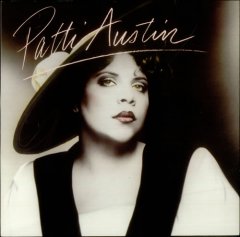 It wasn't a reflection on their style,
it was a funny situation because we had like three days to do four
songs and they had not had any of their gigantic hits then.. I only
knew them from Got to Be Real, they hadn't worked with Janet
[Jackson] at that point. The singers they had worked with needed a
lot of instruction to get through a vocal and they were not used to
working with a singer who didn't need that.
It wasn't a reflection on their style,
it was a funny situation because we had like three days to do four
songs and they had not had any of their gigantic hits then.. I only
knew them from Got to Be Real, they hadn't worked with Janet
[Jackson] at that point. The singers they had worked with needed a
lot of instruction to get through a vocal and they were not used to
working with a singer who didn't need that.
They didn't anticipate that I had those kinds of chops, and I didn't anticipate that they had those chops as producers. It was a funny three days of scratching and sniffing but at the end we were crazy about each other and had an insane admiration.
But they expected me to be the average singer who needed direction but by that point in my career if I didn't know how to sing I was in a lot of trouble. I'd been doing it for 30 years.
Is that why after all those big r'n'b hits you did the album The Real Me which many people say was a revelation. Did you feel you needed to stretch into another area and away from the dance charts.
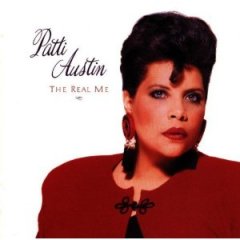 Yeah, I think that was where I lived
musically and at some point I wanted to make a record about that.
Prior to that it was always about what the record company wanted and
trying to please that little monster, so it was, 'Okay, can we do one
for the gipper here'.
Yeah, I think that was where I lived
musically and at some point I wanted to make a record about that.
Prior to that it was always about what the record company wanted and
trying to please that little monster, so it was, 'Okay, can we do one
for the gipper here'.
And at that point it was like I was introducing myself to a whole new genre, but that was the genre I had in my back pocket along who my straight up stuff, what I cal my classical jazz chops which nobody really knew about that that time.
Then I went to Germany and started doing it there . . . and I couldn't even begin to do that in the States then because nobody cared about that music here. I had to go to somewhere else in the world to make a straight up jazz record. I knew that was going to be in reserve, but I also knew that was music that no one wanted to hear from me at that point in my career.
I wasn't angry about it. Eventually I was glad about it because I knew that would have legs as a result and I could keep making music, and of different kinds because I had the capability. I was not required earlier in my career to expose all that. So it's been nice to wheel it out over time and have people go, 'Oh my God, I didn't know you could do that too!'
It's fun to surprise an audience and it keeps it interesting for me. Now for the music industry (laughs) . . . that's not something they are thrilled about because they love to pigeonhole you.
I have a reputation for being all kinds of singer and initially that didn't suit me well, but through the years it has served me extremely well.
The climate has changed in the past couple of decades however and the Great American Songbook has come back to attention. It would be less difficult to make an album like that now perhaps?
Yes true and it's kinda become the resting place for older artists, even if they are heavy metal or rock'n'roll singers. It's like, 'Okay Rod Stewart, it's time for you to sing the Great American Songbook' In my Ella Fitzgerald show I do a bit where I talk about Snoop Dogg doing his comeback and I rap some Gershwin and say that eventually he's going to have to go there. This is what it is going to be like.
But it seems to be the resting place for a lot of older singers. Paul McCartney has just done an album which is very good I have to say.
Especially the ballads.
Oh yes, the ballads. To be honest I'm not a fan of most of the people who try to do this music – and I use the word 'try' – but he's certainly at the top of my list as one who has nailed it. He's done a very authentic, very McCartney and yet wonderful job of interpreting that music.
You've sung alongside the best of your generation, Luther Vandross, George Benson, Johnny Mathis and Michael Jackson . . .
Yeah, I've been suffering with all those horrible male vocalists. (laughs)
I guess it's a compliment that your voice is so malleable that you can work with these very different people.
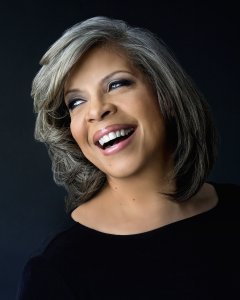 Yeah, when I came up in this business –
because I was a child – I was a little sponge and I was absorbing
everything around me. And at that time if you were a vocalist you had
to sing everything, and you had to be an entertainer.
Yeah, when I came up in this business –
because I was a child – I was a little sponge and I was absorbing
everything around me. And at that time if you were a vocalist you had
to sing everything, and you had to be an entertainer.
You had to sing and dance and act and tell jokes, you had to do all of it. If you look back on that generation of Sammy Davis Jnr, Frank Sinatra, Nat King Cole . . . all those people had tremendous versatility and could sing different kinds of stuff and they were tremendously entertaining on stage.
They didn't just stand there and sing, they told stories and played drums. So this is the school I grew up in, to be able to plug in to anything that's going on around me, because that was the requirement. And it's served me well, especially at this time when the business is changing that I am able to do that.
Your career has been mostly on the live circuit in the past few decades.
A lot, which I find very, very enjoyable, especially internationally. I love working with different audiences and they all have different personalities and likes and dislikes. It's great fun going out there and throwing that pasta to the ceiling and seeing if it sticks.
It is true you were singed to RCA Records when you were five?
Yes, it is true.
Was this just them getting a lock on the kid in case she proved to be good.
Well there was a combination of things. Dinah Washington was my godmother and she helped set that up and they had seen me perform. The intention was to make a record and put it out. In those days you didn't make an album until you sold singles and if they sold you'd get to do the album. It's a good method, it's a cheap test market thing and you know what the audience likes and you aren't spending hundreds of thousands of dollars doing test marketing, you are throwing out product and seeing if it sticks.
What happened was at at that time there was the Children's Aid Society which was tremendously strict about how kids were allowed to function in the entertainment business and you were not allowed to work as a professional until you were six. And I was five.
So they couldn't release the record. I ended up doing two television series – the local show Star Time in New York where Bobby Darin, Connie Francis and Bernadette Peters got started, the other was Ray Bolger's Washington Square which was nationally broadcast. But I laid low for six months and came back and lied about my age and said I had turned six. By that time though the record had sat around too long and so the deal fell apart, but it wasn't because they didn't want to put it out.
Then you continued singing.
Yes, but only on weekends and during summer vacations because my parents wanted me to have a normal life. We were living at Bay Shore, Long Island which is now a suburb. But in those days it was an agricultural and fishing town, very rural, and we ere driving in to Manhattan on weekends to do the TV shows. But my parents were serious about me having a regular life. It was suggested to my parents that we move into the city and I go to a Professional Children's School and my parents said, 'Absolutely not, this kid is going to public school and she's gonna do her chores at home and if she wants to sing on Saturday night that's fine. But she'll be a regular kid . . . or we'll kill her!'.
In retrospect an exceptionally good grounding for you.
Yes, it was and had I not had that kind of background I would probably be just as crazy as everyone else in the business. At this point I am only half as crazy.
We look at the attrition rate and this is an industry that kills its young.
Yes, in a cold blooded way.
What's been the hardest, most cold blooded thing you've experienced?
I've really missed a lot of it because I had very savvy parent and godparents – Quincy my godfather, Dinah Washington my godmother – so I had really heavy duty guidance in my youth and not a lot of surprises. And I was big into listening to them. I was absorbing it and being very prepared for what the business had to throw at me. The only thing I found surprising, because I hadn't been in a position to deal with the specific situation, was when I found out how much money went under the table to create a hit record back in the day.
It wasn't shocking but I was surprised to be in the middle of that situation. 'Okay ,pay $5000 and we'll play your record'. 'Really?'
That was kinda ugly. It didn't destroy me to find out, I knew there was something going on and I'd heard the word 'payola' but I never thought about it that much. But when I was in a position to write that cheque I thought that was interesting. 'I thought it had something to do with the merit of your work?' (laughs)
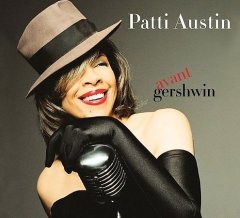 A high point was a belated Grammy in 2007 for the Avant Gershwin album?
A high point was a belated Grammy in 2007 for the Avant Gershwin album?
It wasn't really because it wasn't really why I do what I do. If anything I kinda feel awards for anything artistic are a little bit stupid. How do you say Nancy Wilson didn't sing that as good as me? It might make sense if you got an award if everyone sang the same song to the same arrangement. But even then you couldn't say because it's a very subjective choice.
So I always felt like 'It's nice but who cares?' And then I won and became crazy like Kanye West. 'Yay I won, Yay'. And that lasted about a day. (laughs)
It was fun to win but I don't put a lot of credence on awards. It's great for the industry and puts it in the public space for a week . . . and I must say I had the opportunity to be in the nomination process and that gave me a lot more respect for my award. I had no idea how intense that procedure was and that helped me to appreciate winning the Grammy more than when I actually won it.
There is an aspect of the process which is very heavy duty and the people making their decisions really know what they are talking about. I think it looses a bit of credibility after the nomination process and it gets into a popularity contest. That bothers me, but the nomination process has very good people working on it.
Any unrealised ambitions?
About 20 and I'm working on 10.
I've really been working hard in the last five years to do more producing so I can get my chops together for that because it's a dark and horrible world out there. But I've watched so many people do I think I have a good handle on it.
And I have an avocation that has nothing to do with singing, producing or cha-cha-cha and that is about interior design. I've been working on that privately for many years and have been mentored by some wonderful designers in boston.
That must be refreshing, to do something completely removed from the world you inhabit.
It sure is, but it is completely fulfilling. I've been singing for 55 years and I won't say it gets monotonous, but it is so much fun to do the other thing . . . and it feels as comfortable for me as it does to be an entertainer.

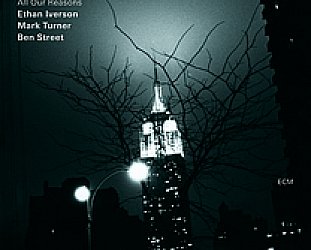

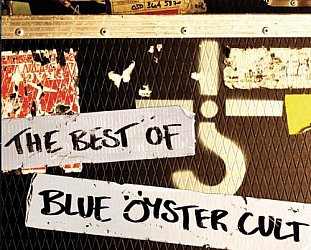
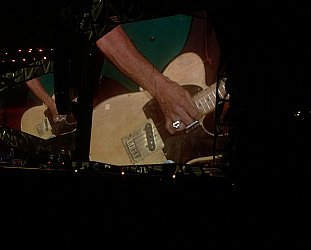
post a comment